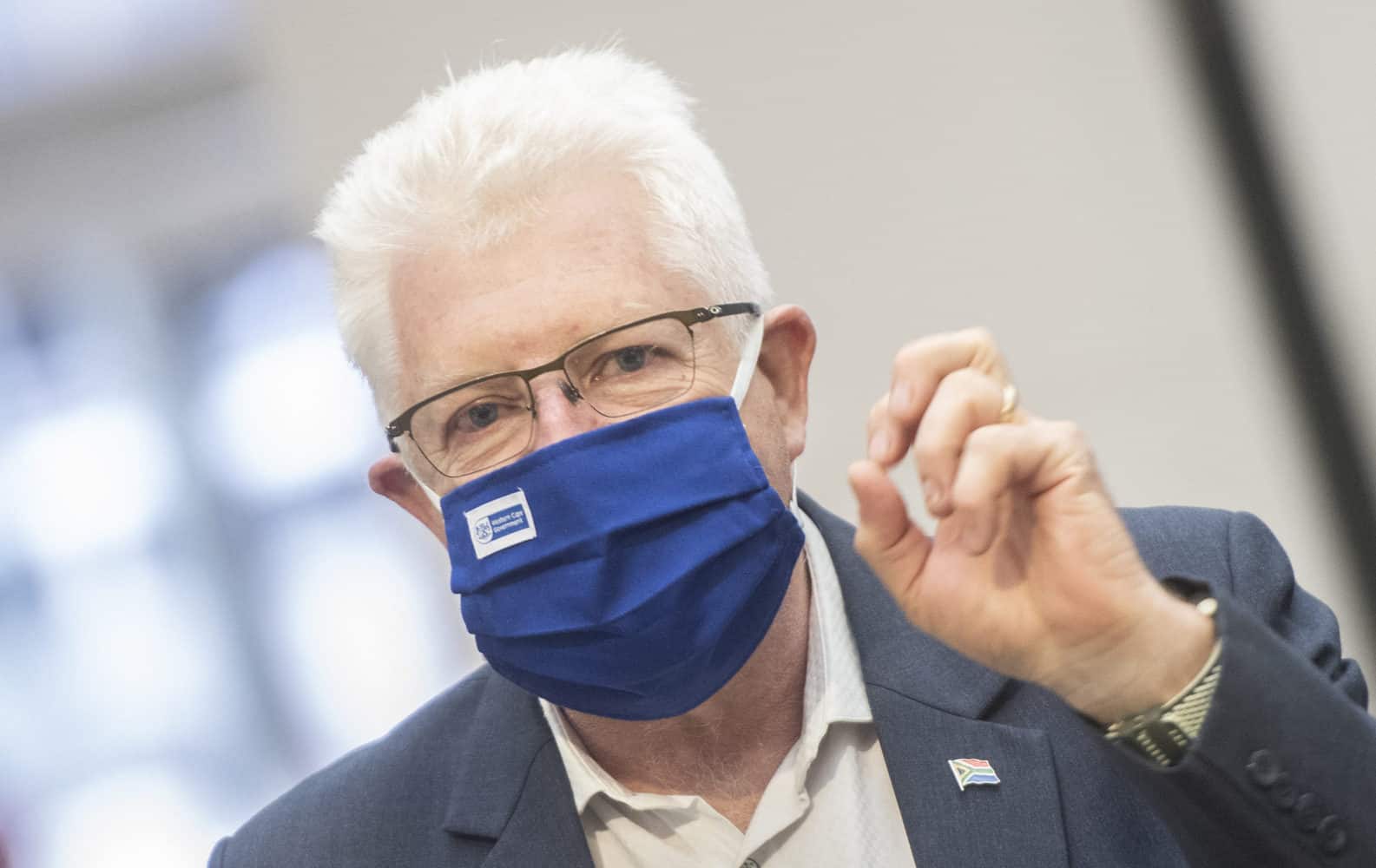Winde said the Western Cape remained on high alert, despite the absence of looting incidents.

Amid the mayhem – rampant violence, destruction and widespread plunder of businesses that has gripped KwaZulu-Natal and parts of Gauteng – the Cape enclave has remained far from the madding crowds.
Residents in the Eastern, Western and Northern Cape, have so far resisted taking part in the ongoing looting, which has had dire devastation for the South African economy.
In unprecedented scenes of lawlessness, following the 15-month jail sentence imposed by the country’s apex court on former president Jacob Zuma, marauding mobs have gone on a looting frenzy in protest against his incarceration.
To find out how they have managed to maintain stability, The Citizen on Thursday engaged premiers Oscar Mabuyane (Eastern Cape), Dr Zamani Saul (Northern Cape) and Alan Winde (Western Cape).
According to Mabuyane, the Eastern Cape remained stable despite an intense social media lobbying campaign “by those trying to mobilise peace-loving citizens to emulate Gauteng and KZN”.
He said law-enforcement agencies in the province were “investigating the origins of these messages, to arrest the ring-leaders of that campaign”.
“We commend the people of our province for refusing to emulate the violent conduct of looting businesses – destroying public and private infrastructure.
“We are inspired by campaigns led by people on social media, discouraging each other from participating in acts of criminality in our communities – protecting their own towns from attacks by anarchists,” said Mabuyane.
He applauded the taxi industry, leaders of political parties, labour, religious, traditional, business, youth and other organs of civil society “for taking a stand against anarchists”.
Added Mabuyane: “The province is battling with a huge socio-economic infrastructure challenges and underdevelopment, with people forced to look for jobs in other provinces.
“We cannot shoot ourselves in the foot by destroying the infrastructure we have.”
Saul said the people of the Northern Cape have over the past few days “noted with concern the acts of public violence and lawlessness on a level never seen in the history of our democracy”.
He described it as “heart-warming” what he commended as “the collective and decisive refusal of members of communities in our province to engage in looting, violence and criminal activities of any form”.
“Their subsequent action of joining hands with community police forums, neighbourhood watch groups and the police, has resulted in the prevention of violence and the protection of our infrastructure.
“This has been done through night watches and the creation of localised communication networks to identify and report possible outbreaks.
“This active citizenry sets a good example.
“We also welcome the call by the South African National Taxi Council in the province to all its members and drivers to protect properties – not taking part in any forms of violence and looting.
“We salute these citizens who work with the police to ensure that our country remains a lawful and peaceful destination.
“Our heartfelt gratitude is therefore extended to every community member, community volunteer, business owner, taxi association and others who have stepped forward to ensure that no form of looting or criminal activity of any form gets tolerated.
“The police have taken a firm and proactive stance in preventing and monitoring the possible outbreak of instances of looting and violence,” said Saul.
Looting, said Saul, had “dire consequences for our economy”.
“Losses incurred elsewhere in the country already run into billions of rands.
“This will have a negative impact on our efforts to build our economy for the benefit of all our people.
“We call on members of the public to guard against creating unnecessary panic by sharing false or misleading stories about the acts of violence and destruction of property on social media.
“Communities are advised to speak to their ward councillors, community policing forums and their local police stations to report any suspicious activities,” said Saul.
The rollout of the Covid vaccine programme was running on course in all three Cape provinces without interruptions.
Winde said the Western Cape remained on high alert, despite the absence of looting incidents.
“From the very start, we mobilised all provincial security stakeholders including the SANDF, SAPS, traffic officers, the City of Cape Town metro police, neighborhood watches and community police forums.
“All these partners and their ongoing efforts from across the province, get coordinated and monitored through the Provincial Disaster Management Centre, where the Joint Operations Centre is based.
“Throughout the year we conduct extensive risk management, through a whole of government approach, to prepare ourselves to deal with any eventualities.
“I want to thank each and every person playing a part in monitoring and providing real-time feedback.
“Civil society has an important role to play in both calling for calm and advising residents not to spread fake news, with the Desmond and Leah Tutu Foundation having condemnation criminality and violence.
“I am pleased with the state of provincial intelligence in the Western Cape at the moment.
“Where we receive tip offs or information, we quickly verify this information through our channels at the Provincial JOC and SAPS in the Western Cape, and in the City of Cape Town’s Directorate for Safety and Security,” explained Winde.
Winde said well-managed and well capacitated structures were “critical when tackling a major crisis”.
He said: “Our disaster management centre has built up a lot of experience from years of tackling challenges in the province and this is proving to be a big benefit during this crisis.
“The majority of people are law-abiding, honest people looking for a better future for themselves and their loved ones.
“We cannot forget that and we always tell one another in the Western Cape that we are stronger together and working together we can achieve more.
“When people resort to looting or riotous behaviour, this undermines the economy and threatens the livelihoods of many.”
Support Local Journalism
Add The Citizen as a Preferred Source on Google and follow us on Google News to see more of our trusted reporting in Google News and Top Stories.






